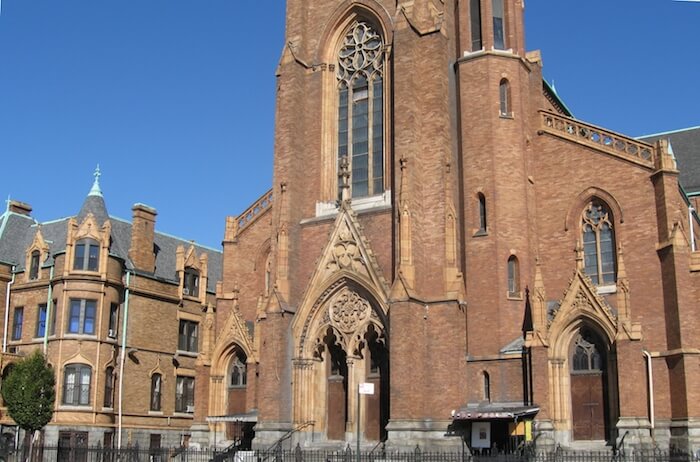Crisis of Faith: Brooklyn Churches Look to Sell Land
Facing rising operating costs and shrinking congregations, the leaders of more than fifty Brooklyn churches met with Brooklyn Borough President Eric Adams recently to learn about opportunities to ride the wave of Brooklyn’s real estate boom and create a sustaining profits for their churches. A key point of conversation was the creation of affordable housing, which would align with many churches’ overt social mission.
With a focus on working with developers, the conference on “faith-based property development” was partially in response to the recent residential conversion of more than twenty Brooklyn churches and church buildings in the past two decades, DNA Info reports.
Mayor de Blasio’s oft-cited plan to create 200,000 affordable housing units is coming along in fits and starts, it seems, with far more demand than supply and a very loose grasp of the term “affordability.” Although the churches seem far more inclined than developers to include affordable housing units in any development that might…er, develop, the landscape has officially changed when churches are forced to jump on the real estate wagon in order to keep their lights on.
No one is talking about tearing these churches down—or, not if it can be avoided. (Though most developers likely wouldn’t bat an eye.) The conversation reportedly focused on developing church holdings like parking lots and other properties. A prime example of this effort is Bethel Gospel Assembly, in Harlem, which created 47 units of rental housing (“some affordable,” according to DNA Info) and more than three times that many condos, which sold for a few million dollars each.
Admittedly, Brooklyn churches developing residential units is a nice change from Brooklyn churches becoming residential units, even if the reason they’re forced to create residential units is the spike in real estate prices, which is only spurred by new development. Even so, it’s hard to imagine a better application of rent money than church-run social welfare programs, and for entities that don’t always have steady or lucrative revenue streams, real estate development might not be a bad move. No word yet on whether mosques, temples, or other religious houses are facing similar financial strains, but it’s true what they say about investing in real estate—location, location, location.
Follow John Sherman on Twitter @_john_sherman.
You might also like 




















